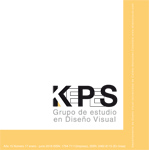Authors
Abstract
This research presents a comprehensive analysis of the values and antivalues created through the propaganda and political communication of the President of Ecuador Rafael Correa Delgado in a determined temporality in 10 years of management of the political command. In Latin America from the installation of the political model called Socialism of the XXI Century, communication plays a preponderant role, since it is understood that the correct management of the message generates a close dialogue with the people and therefore generates an ideological affinity. In this paper the elements and analysis of the Ecuadorian president’s communication and how he has exercised the community from the beginning to the end of his mandate are analyzed as the elements of analysis and the analysis and results presented represent the content based on participant analysis of the speech framed in the permanent campaign of ideas and rapprochement with the population.
References
Balandier, G. (1994). Power on the scene. Buenos Aires, Argentina: Paidós.
Cabrera, T. and López, M. (2015). Political Campaigns Through Social Networks, Com Humanitas. Recuperado de file:///C:/Users/Administrador/Downloads/56-87-1-PB.pdf.
Carabaña J. & Lamo Espinoza, E. (1978). La teoría social del interaccionismo simbólico: análisis y valoración crítica. Cali: Trillas. (T. by autors).
Carretón, C. (2014). “La molécula conductual de las relaciones públicas en la comunicación gubernamental Con los inmigrantes de España”. En Comunicación Organizacional, Revista Chasqui No. 126. Quito: CIESPAL.(T.by autors)
Escobar, T. (2009). The traditional popular festival of Ecuador. Quito, Ecuador: Editorial Fund of the Ministry of Culture.
Fiuri, É. and Tejedor, L. (2016). Personality and emotionality strategies in the electoral spots of UPYD and PODEMOS. The Old Politics Vs. The new policy. Recovered http://fama2.us.es/fco/experiencias7.pdf.
Gringas, A.-M. (2012). The argument in the televised debates between the presidential candidates of the United States: The emotion like tactic of persuation. En A. Mercier (Coord.), Political Communication (pp. 99-111). Buenos Aires, Argentina: La Crujía ediciones.
Halpern, D. (2010). Crisis Management, theory and practice of a communicational model. Santiago de Chile, Chile: RIL editors.
Lucas, M. (2012). Campaign in the network. Strategies of Electoral Marketing on the Internet. Digital Magazine of Applied Marketing. Pontifical University of Salamanca.
López, B. and Martínez, G. (2012). 360 degree communication. En T. Pintado and J. Sánchez (Coord.), New Trends of Communication (pp. 18-45). Madrid, España: ESIC Editorial.
Mercier, A. (2012). Introduction. Political Communication. Buenos Aires, Argentina: La Crujía ediciones. (T.by autors)
Mouffe, C. (2013). Agonistic. Buenos Aires, Argentina: Fondo de Cultura Económica.
Rizo, M. (2011). Pensamiento Sistémico Y Comunicación. La Teoría de la comunicación humana de Paul Watzlawick como obra organizadora del pensamiento sobre la dimensión interpersonal de la comunicación. Razón y Palabra, febrero-abril. Recovered: http://www.razonypalabra.org.mx/N/N75/monotematico_75/29_Rizo_M75.pdf. (T. by Autors).
Veron, E. (2012). The mediatization of politics. En A. Mercier (Coord.), Political Communication (pp. 63-72). Argentina, Buenos Aires: La Crujía ediciones.
Wiener, N. (1958). Cibernética y sociedad. México: Consejo Nacional de Ciencia y Tecnología. (T. by autors).
Zia, F. (2016). Communicating political communication. from,https://books. google.com/books?id=7rrlCwAAQBAJ&dq=communication+policy&hl=en&source=gbs_navlinks_s.

 pdf (Español (España))
pdf (Español (España))
 FLIP
FLIP






















